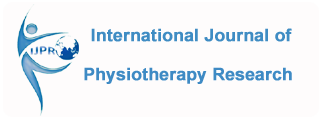IJPR.2021.122
Type of Article: Original Research
Volume 9; Issue 3 (June 2021)
Page No.: 3834-3842
DOI: https://dx.doi.org/10.16965/ijpr.2021.122
Perception and Knowledge Regarding Role of Physiotherapy in Oral/Mouth Cancer Survivors amongst Non-Medical Professionals: An E-Survey
Renu Pattanshetty *1, Siddhi Gotecha 2, Harshitha Hugar 3.
*1 Professor and Head, Department of Oncology Physiotherapy, KAHER Institute of Physiotherapy, Belagavi, Karnataka, India.
2,3 Intern, KAHER Institute of Physiotherapy, Belagavi, Karnataka, India.
Corresponding Author: Dr. Renu Pattanshetty MPT, Ph.D., Professor and Head, Department of Oncology Physiotherapy, KAHER Institute of Physiotherapy, Belagavi, Karnataka, India.
Mob. No.: +91 9448482564 E-Mail: renu_kori@rediffmail.com
ABSTRACT
Background & Objectives: About 5 million people are diagnosed with cancer worldwide. 50% are expected to live at least 5 years with most survivors living with cancer related disabilities. Physiotherapy rehabilitation becomes crucial for better quality of life after cancer treatment. The objective of the present study was to assess the perception and knowledge regarding role of physiotherapy in oral/mouth cancer survivors amongst non medical professionals in India.
Methodology: This e-survey was conducted using a self -prepared questionnaire in English language carried out for a period of 3 months. Questionnaire was circulated among respondents across India via social media
Results: Out of 265 respondents, a total of 92.8% respondents had fair knowledge regarding oral cancer and its causes. 57.7% respondents had knowledge about problems faced by oral cancer survivors. Physiotherapy as a treatment option was known to 87.9%. 75% respondents possessed knowledge of physiotherapy in treating functional limitations seen in oral cancer patients .
Conclusion: There was sufficient knowledge among the respondents regarding oral cancer and physiotherapy treatment in oral cancer survivors. However, there is a dire need to take measures to assess the awareness of physiotherapy in cancer to improve quality of life amongst rural population.
Key words: Perception, Oral cancer survivors, Human papilloma virus (HPV), Palliative care, Physiotherapy, Quality of life.
REFERENCES
[1]. Guru K, Supe S, Manoor U. A comprehensive review of head and neck cancer rehabilitation: Physical therapy perspectives. Indian Journal of Palliative Care. 2012;18(2):87.
[2]. Kulkarni M. Head and Neck Cancer Burden in India. International Journal of Head and Neck Surgery. 2013;4(1):29-35.
[3]. Byakodi R, Byakodi S, Hiremath S, Byakodi J, Adaki S, Marathe K et al. Oral Cancer in India: An Epidemiologic and Clinical Review. Journal of Community Health. 2011;37(2):316-319
[4]. Stuiver M, Stout N, Dennett A, Speksnijder C, Campbell K. An international perspective on integrating physiotherapists in oncology care. Journal of Physiotherapy. 2019;65(4):186-188.
[5]. Doshi D, Jiandani M, Gadgil R, Shetty N. Physiotherapy Awareness in Medical and Non Medical Professionals: A Social Media Survey.International Journal of Physiotherapy and Research. 2017;5(2):1971-197
[6]. Al-Maweri S, Addas A, Tarakji B, Abbas A, Al-Shamiri H, Alaizari N et al. Public Awareness and Knowledge of Oral Cancer in Yemen. Asian Pacific Journal of Cancer Prevention. 2015;15(24):10861-10865.
[7]. Devadiga A, Prasad K. Knowledge about oral cancer in adults attending a Dental Hospital in India. Asian Pacific Journal of Cancer Prevention,. 2010;vol 11.
[8]. Gupta B, Bray F, Kumar N, Johnson N. Associations between oral hygiene habits, diet, tobacco and alcohol and risk of oral cancer: A case–control study from India. Cancer Epidemiology. 2017;51:7-14
[9]. Human Papillomavirus and Oropharyngeal Cancer. New England Journal of Medicine. 2007;357(11):1156-1158.
[10]. Meurman J. Infectious and dietary risk factors of oral cancer. Oral Oncology. 2010;46(6):411-413.
[11]. Babiker T, Osman K, Mohamed S, Mohamed M, Almahdi H. Oral Cancer Awareness Among Dental Patients in Omdurman, Sudan: a cross-sectional Study. BMC Oral Health. 2017;17(1):
[12]. Muthu G. Awareness of Oral Cancer among a Hospital based Out-Patient Population- A Questionnaire Based Study. Journal of Pharmaceutical Sciences and Research. 2016;8(7).
[13]. Pyszora A, Budzyński J, Wójcik A, Prokop A, Krajnik M. Physiotherapy programme reduces fatigue in patients with advanced cancer receiving palliative care: randomized controlled trial. Supportive Care in Cancer. 2017;25(9):2899-2908.
[14]. Vira P, Samuel S, Amaravadi S, Saxena P, Rai PV S, Kurian J et al. Role of Physiotherapy in Hospice Care of Patients with Advanced Cancer: A Systematic Review. American Journal of Hospice and Palliative Medicine®. 2020;:104990912095116.
[15]. Rasmussen D, Elverdam B. The meaning of work and working life after cancer: an interview study. Psycho-Oncology. 2008;17(12):1232-1238.
[16]. Osazuwa‐Peters N, Simpson M, Zhao L, Boakye E, Olomukoro S, Deshields T et al. Suicide risk among cancer survivors: Head and neck versus other cancers. 2018;124(20):4072-4079.












 Users Today : 304
Users Today : 304 Users Yesterday : 187
Users Yesterday : 187 This Month : 3608
This Month : 3608 This Year : 32140
This Year : 32140 Total Users : 133913
Total Users : 133913 Views Today : 795
Views Today : 795 Total views : 477427
Total views : 477427 Who's Online : 69
Who's Online : 69